
Get to know Greater Peoria, a BRECC Action Challenge community
Greater Peoria, Illinois is part of The Hub’s second Building Resilient Economies in Coal Communities (BRECC) cohort and the team is getting
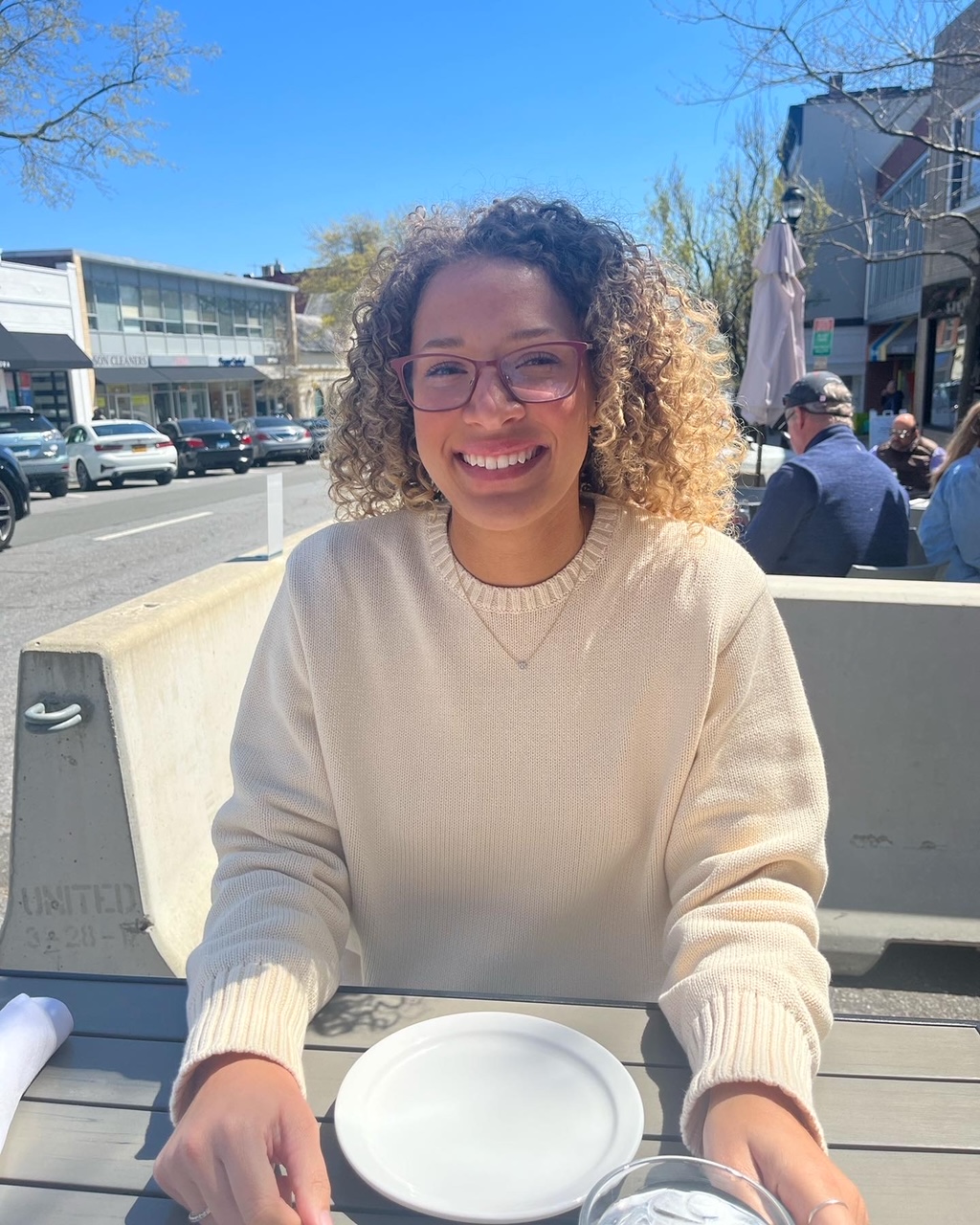
West Virginia is known for its unparalleled scenery and majestic natural beauty. Millions of tourists come from around the nation to bask in the Mountain State’s parks and adventure along its many rivers, hills, and mountaintops. So many West Virginia communities depend on recreational tourism and other communities are tapping into the natural resources around them to bring recreational tourism to their economies.
Towns in close proximity to the ever-expanding Hatfield McCoy Trail Systems and communities banding together through the Monongalia Forest Towns Partnership are great examples of the new interest in revitalizing recreational tourism. Preserving the environment that these tourists are attracted to is an essential part of communities finding success, and Michaela Collins is an AmeriCorps Volunteer in Service to America (VISTA) spending a year of service in Morgantown with Friends of Deckers Creek (FODC) doing just that.
Michaela grew up in a small community in Southeastern Ohio. Her love for Appalachia runs deep. As a native from the area, she has always been connected into and interested in the land and natural beauty here. Michaela, who is the Environmental Education and Outreach VISTA with FODC, dedicated her education, and now her life’s work, to the land. That is why this VISTA opportunity spoke to her.
“I wanted to work in West Virginia because I have a deep love for Appalachia,” Michaela, a West Virginia University graduate, affectionately explains about her work.
She adds: “At the end of the day, no matter who you are, we are all accountable for the state of our environment and natural resources so to see that environmental ethic come out in such a representative group of people is amazing.”
Michaela has experienced moments of great community pride and touching support during her time with Friends of Deckers Creek (FODC). Her recent Make It Shine event brought more than 100 people to the creek to spend the day cleaning up trash. Seeing the outpouring of support from the community moved Michaela and the volunteers with FODC. She believes strongly in the importance of caring for the environment in a way that benefits the people who live in it and, in turn, benefits the health of those people.
“As a VISTA with FODC, I get to grow in my people- and community-building skills by translating my environmental science knowledge into something anyone and everyone can understand and enjoy,” Michaela says about the role of the environment on people’s overall health. “Science is ultimately irrelevant unless you can find a way to relate it to people, and all work in environmental science is ultimately related to people – the people who live in and rely on their environment. …I bring my knowledge and my passion for the outdoors to my role as a VISTA, which guides me in furthering FODC’s mission.”
In working specifically with FODC, Michaela is able to flex her knowledge about watershed issues and freshwater ecology. She brings her background to her role as she works to heal Deckers Creek from acid mine drainage, which is the biggest contributor to pollution in that waterway. As Michaela explains, acid mine drainage is detrimental to the health of the creek and any people and animals that rely on the creek. The acid mine drainage drops the pH level of the water to 2 while filling the creek with toxic heavy metals, which can lead to lead contamination of drinking water. One of the leading causes of this type of pollution is contaminants seeping from mines abandoned before the Clean Water Act of 1972.
“In talking with community members on a day-to-day basis, all of these issues come into play in their everyday lives,’ Michaela recalls about her year in service to FDOC. “They may not be thinking of it on a large scale like the economic and climate impacts, but their individual struggles of health, opportunity, and poverty are what make up those larger-scale issues – which is where my role as a VISTA comes in. Bringing the education and tools of the ‘big picture’ to the individual level, and giving them the opportunity to make a change in their communities.”
Michaela sees hope for West Virginia’s land and its people. During her time as a VISTA, she has witnessed a community working together to clean up their local waterway and to create increased health and quality of life for everyone in the area.
“We’re having success in maintaining our current treatment systems and working with landowners in the community to get new sites built, expanding our capacity to treat acid mine drainage. The other pollutants that impact the watershed are litter, sewage, and erosion/runoff. On that front, we’re having success in building relationships with city officials and local engineering firms, making long-term plans to reduce sewage and erosion inputs and help control litter.”
Michaela is hopeful that more young people will get involved in the environmental cleanup efforts happening around the state. The beauty of the state is unparalleled and attracts tourists from across the nation to enjoy what makes West Virginia so Wild and Wonderful.
“Specifically in the Appalachian region, I believe it is important for young people to understand the true uniqueness of this region,” Michaela says. “The composition of plants, animals and all things in between that exists right where you are doesn’t exist anywhere else on Earth. It’s interwoven into our culture, our history and our beings – so nurturing strong environmental ethics in younger – and all – generations is more important than words can truly say.”
The West Virginia Development Hub hosts AmeriCorps Volunteers in Service to America (VISTA) members in communities participating in our coaching programs as well as in partnership with organizations around the state. The Hub currently has VISTA sub-sites in Fairmont, Morgantown, Rainelle, Clarksburg, Elkins, and other communities. The VISTA program was founded in 1965 and is an anti-poverty program providing needed resources to nonprofit organizations and public agencies to help lift communities out of poverty. The VISTA program places volunteers 18 years or older into communities where they perform a year of full-time volunteer service.
In the VISTAs of West Virginia series, you’ll learn more about the VISTAs working in Hub communities uplifting economic and community development teams around the state.
Interested in becoming a VISTA? Check out current opportunities through The Hub »

Greater Peoria, Illinois is part of The Hub’s second Building Resilient Economies in Coal Communities (BRECC) cohort and the team is getting
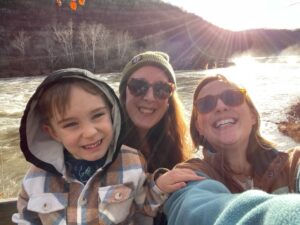
Emma Byrne, Director of Impact We at The Hub are thrilled to announce the newest addition to our team, Emma Byrne. Emma
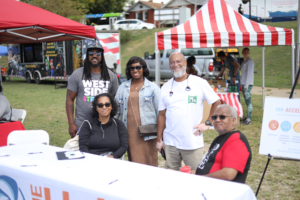
The West Side neighborhood of Charleston participated in the recent West Side Health Fair in Charleston. Lined up along the Kanawha River
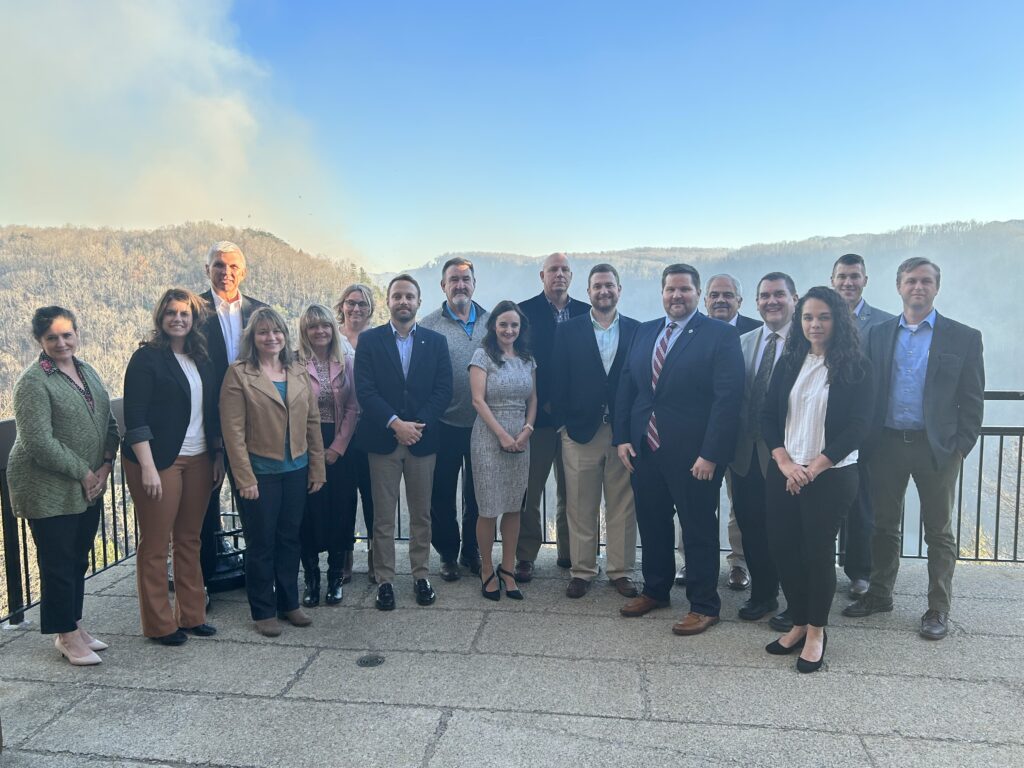
Our work is made possible thanks to incredible partnerships with other community development organizations across the state. From local economic development authorities (EDAs) to state level nonprofits working to uplift communities, all of our partners are crucial in making West Virginia the best it can possibly be by working together.
One partner that made our work truly profound this year is Coalfield Development. For years, Coalfield Development has worked to rebuild Appalachian communities by inspiring the courage to grow, activating the creativity to innovate, and cultivating communities of opportunity in central Appalachia.
We are proud to be part of Coalfield Development’s ACT Now Coalition, a broad network of organizations working hand-in-hand to uplift communities throughout Southern West Virginia. The ACT Now Coalition is infusing more than $63 million into programs to help communities using business development, building revitalization, and so much more.
The Hub is leading the Community and Business Resilience Initiative as part of the larger ACT Now Coalition to bring other partners with us to build up community and business resilience in the Coalition’s footprint.
“For decades, we’ve known the economy of southern West Virginia needs diversification. Some progress has been made on this goal, but not nearly enough,” Brandon Dennison, CEO of Coalfield Development, said about the ACT Now Coalition. “ACT Now constitutes a tangible opportunity to take a major leap forward in this generational challenge to become a vibrant, growing, diversified economy. In the wake of continued coal-job losses, nothing could be more important for our region.”
Our partnership with Coalfield Development is giving us a chance to take our work to new communities and to build upon our years of experience. Working alongside Coalfield Development in this large undertaking to bring $63.8 million to communities in Southern West Virginia is validation that the work happening to uplift West Virginia communities continues to grow.
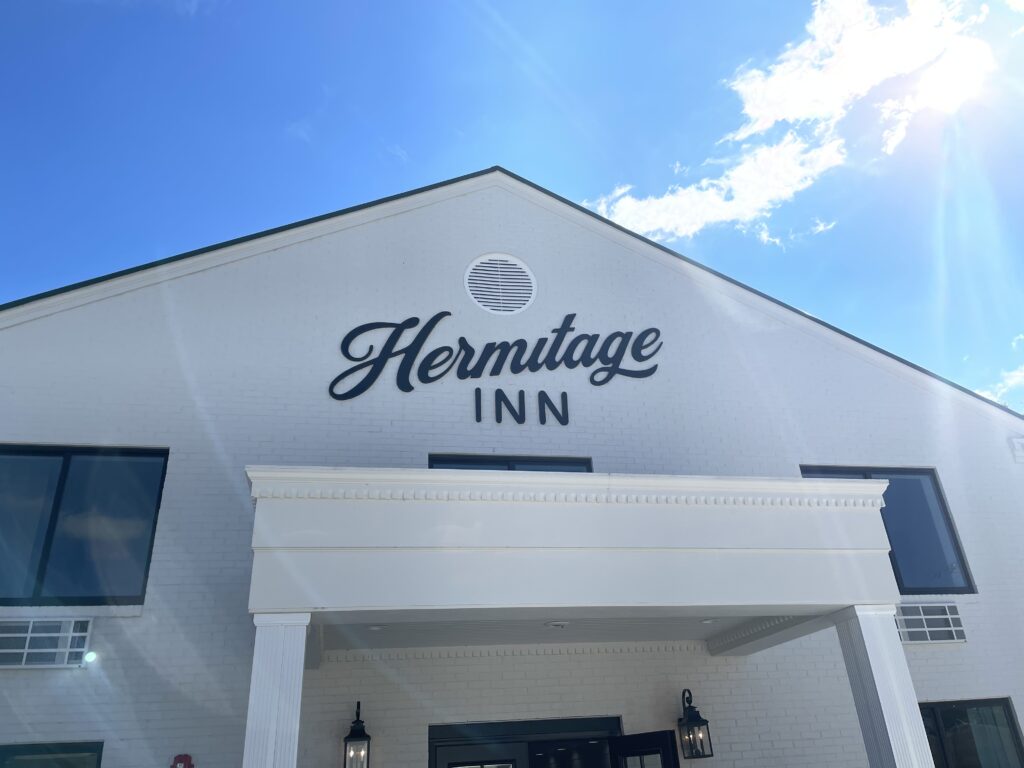
The Hub works alongside communities across West Virginia coaching community teams as they come together to make transformative changes in their towns. In 2022, one town stands out for its continued work and unwavering commitment to making its community a place where people want to live, work, play, and visit.
Petersburg, located in Grant County at the northernmost point of the Mon Forest, is filled with community members who want to make their town a destination. Not only have businesses opened, and stayed open, the town has transformed the way they present to the world through rebranding and outdoor recreational development.
As part of the HubCAP IV program, Petersburg utilized its technical assistance to push forward with projects to bring transformative change to its community. Part of the work Petersburg worked towards was creating plans to pave a hike and bike trail that runs along the Petersburg dike. The proposed trail will run approximately three miles along the Petersburg dike and will include multiple entrances for walkers and bikers. The group secured a $25,000 grant from Senator Hamilton, which was matched locally by the City of Petersburg, the County Commission, and the Board of Education, each adding an equal share to bring the total to $50,000.
This year, Petersburg witnessed a major upgrade to one of the town’s most iconic and historic structures: The Hermitage Inn. The hotel, which dates back to 1841, has been renovated and once again welcomes guests to stay the night and have a nice dinner in the restaurant.
The Hermitage Inn is the first project initiated and completed as part of the Downtown Appalachia: Revitalizing Recreational Economies (DARRE) program. Seeing the old hotel returned to its majesty has been an incredible development for Petersburg adding another jewel to the downtown area.
Seeing Hub communities come together to create transformative change thrills us. Community members are the subject matter experts on what their towns need. Our commitment to accompaniment and walking alongside communities as they do the hard work guides us in our work. Celebrating their victories with them gives us a moment to uplift those making the work happen.
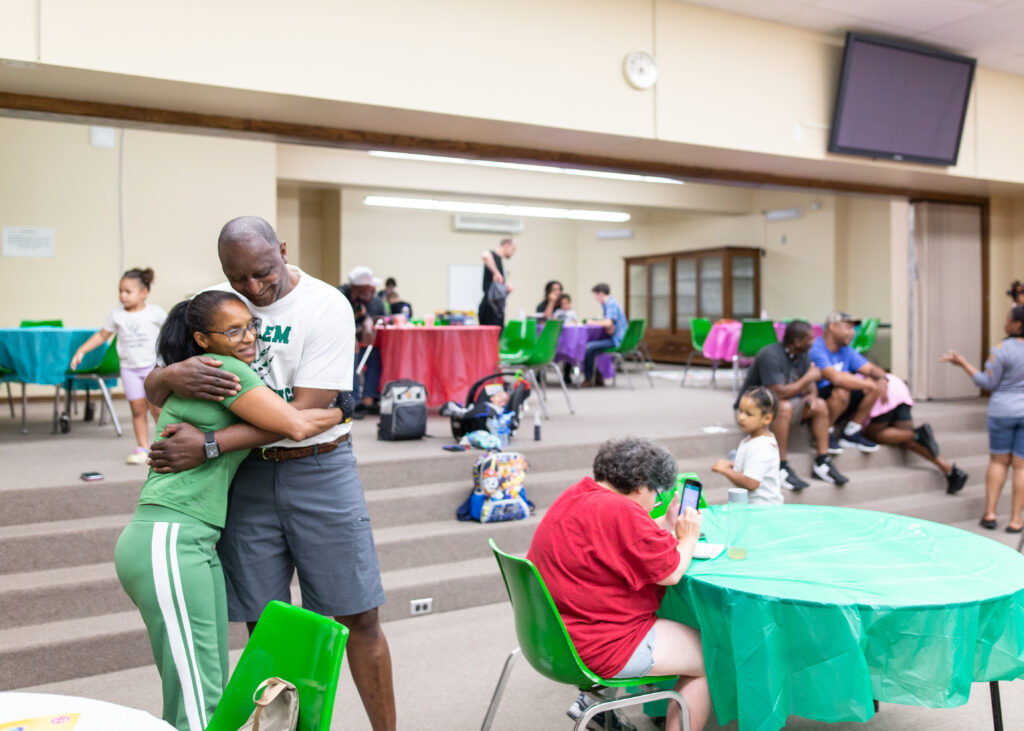
Since 2018, The Hub has been working diligently to bring Diversity, Equity, and Inclusion into our work. For years, the organization has been working internally to expand on one of our core values: “We believe diversity creates strength.”
We believe that now is a time when we must work from the ground up to commit to long-term efforts to build power through leadership development, programmatic strategies, and partnerships that commit to building power and advancing racial equity.
Looking back at our organizational history, we acknowledge that our work in rural communities with populations of less than 15,000 has not reached a diverse cross-section of people in West Virginia. Because of this, we began to ask, “Who isn’t here?” when examining our involvement in communities. The social unrest in 2020 led us to examine our role in white supremacy, ableism, classism, and gender discrimination, and the ways we have perpetuated unjust systems in our communities and across West Virginia.
Since 2020, our equity journey has included a staff racial equity learning series, making internal commitments to increasing our hiring and retainment of diverse staff including creating full-time Racial Equity Fellowship and VISTA positions, committing to increased coaching for rural communities of color across the state, and tackling the inherent challenges of advancing equity across the community development field within a highly rural, majority white state where Black and brown leadership has been historically marginalized and under-invested.
Our belief in the power of local people to see the value and the potential of their place, and of each other, is at the core of our belief in the potential we have to build power in West Virginia to advance racial equity, inclusion, and accessibility while disrupting systems that have historically excluded some communities.
We are committed to engaging in conversations to uplift communities and leaders of color to move from talk to action on why race matters in West Virginia as we work to disrupt these systems. We will support investment in Black-led organizations and rural Black leadership. And we are committed to driving public and private investments into these spaces, both organizational and geographic.
A core team led by Unleash Tygart, Inc participated in Opportunity Appalachia, receiving technical assistance to support a community development project located in an Opportunity Zone.
Core teams led by Thundercloud, Inc. and the City of Huntington participated in Opportunity Appalachia, receiving technical assistance to support community development projects located in Opportunity Zones.
A core team led by Crawford Holdings, LLC participated in Opportunity Appalachia, receiving technical assistance to support a community development project located in an Opportunity Zone.
Residents participated in round 4 of The Hub’s capstone Communities of Achievement program with a focus on building local recreational economies.
Residents participated in round 4 of The Hub’s capstone Communities of Achievement program with a focus on building local recreational economies.
Residents participated in round 4 of The Hub’s capstone Communities of Achievement program with a focus on building local recreational economies.
Residents participated in round 4 of The Hub’s capstone Communities of Achievement program with a focus on building local recreational economies.
Residents participated in round 4 of The Hub’s capstone Communities of Achievement program with a focus on building local recreational economies.
A core team led by Woodlands Development Group also participated in Opportunity Appalachia, receiving technical assistance to support a community development project located in an Opportunity Zone.
Residents participated in round 4 of The Hub’s capstone Communities of Achievement program with a focus on building local recreational economies. Read their community case study.
Residents participated in the Blueprint Communities* program to engage their neighbors and co-create strategic plans for their future.
Residents participated in the Blueprint Communities* program to engage their neighbors and co-create strategic plans for their future. Read their community case study.
Residents participated in the Blueprint Communities* program to engage their neighbors and co-create strategic plans for their future. Watch their community documentary.
Residents participated in the Blueprint Communities* program to engage their neighbors and co-create strategic plans for their future. Read their community case study.
Residents participated in the Blueprint Communities* program to engage their neighbors and co-create strategic plans for their future.
Residents participated in the Blueprint Communities* program to engage their neighbors and co-create strategic plans for their future.
Residents participated in the Cultivate WV program to kickstart community and economy building. Read their community case study.
Residents participated in the Cultivate WV program to kickstart community and economy building. Read their community case study.
It has been a year of abundant opportunities and partnerships across the state, and a year that has pushed all of us to work harder, faster, and smarter – together.
At The Hub, we say that “the work works when you put in the work.” This means that our approach to community-based development, and individual leadership development, really does transform local communities, especially when we all work together for the same goal, and stay committed to working together for the long haul.
In 2023, we continued to be amazed at the local leadership, drive and innovation we saw in communities throughout the state that are building locally-driven development from the ground up. Our network of community leaders, partners and opportunities keeps growing and shows no signs of slowing in 2024!
We extend our deepest gratitude to everyone for being part of the larger Hub community as we reflect on this year’s deep impact in West Virginia communities through our work. We are thrilled to have champions who believe in our mission that every community in West Virginia can achieve economic growth when they are supported with the tools and training they need to lead and spark positive change.
We believe strongly in the fact that putting in the work yourself to improve your neighborhood, your town, and our state is where true transformational change happens. With strategic partners and thought leaders like you in the work with us, we continue to be able to walk alongside community teams as they do the work to uplift their communities.
Thank you to all of the community teams and leaders who are brave enough to keep showing up every day, and putting in thousands of hours of volunteer time to support your communities and the entire state. Your determination in the face of difficult work and far-off successes is something to applaud yourself for – and to celebrate.
Whether you’re volunteering on the ground in your community, sharing our stories of hope with your friends and neighbors, or attending a virtual event with The Hub, your participation in our work is what keeps it going. Thank you for all your work and support this past year, and we are excited to continue in the work with you in 2024!
In Continued Accompaniment,